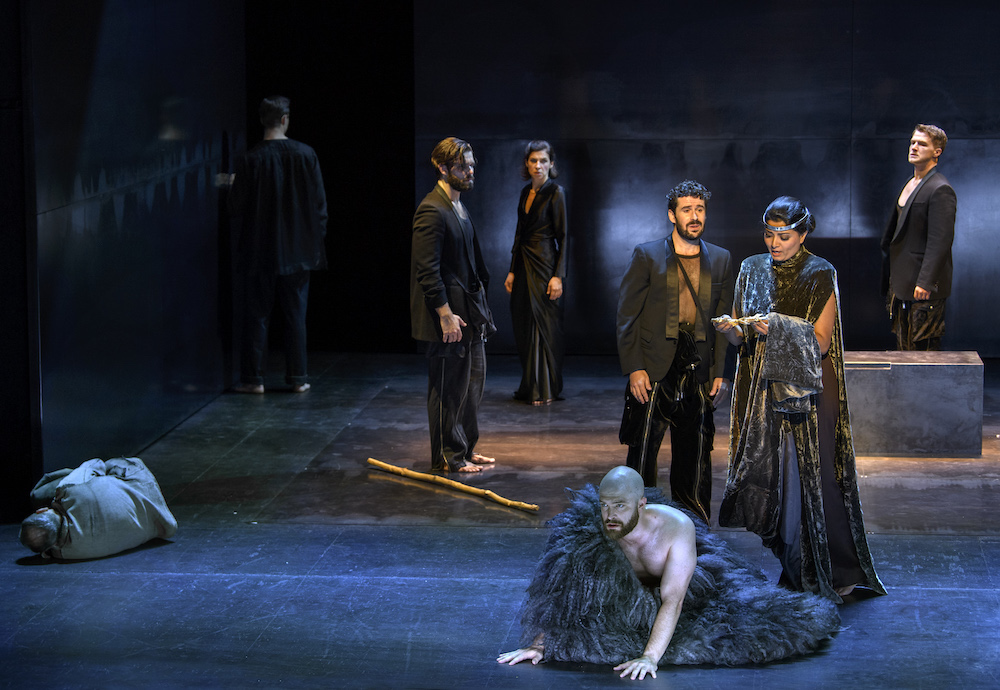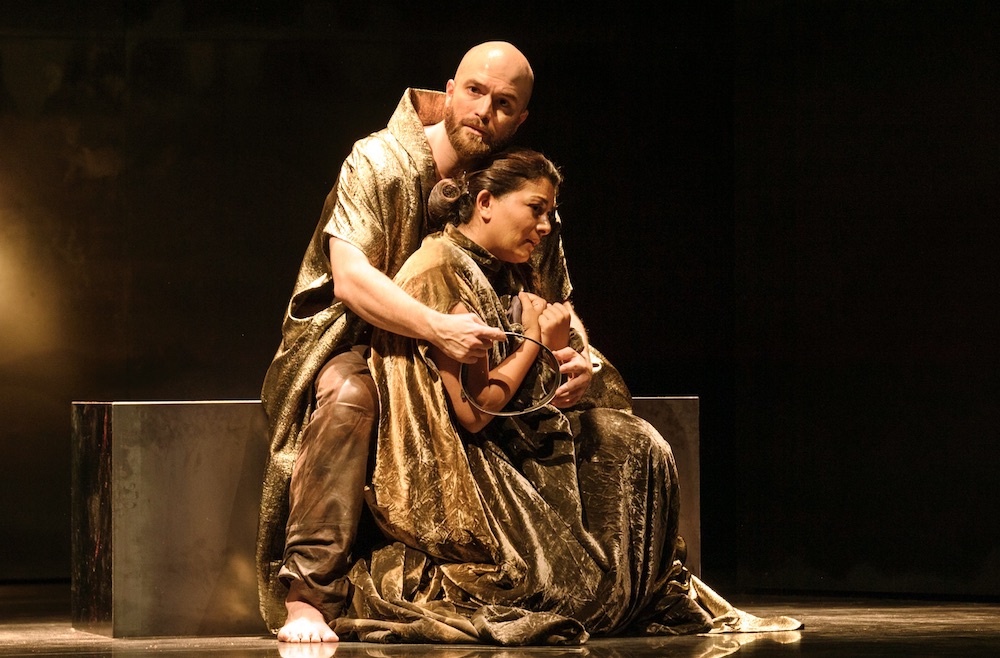Pierre Audi, the artistic director of the Aix Festival, completed the Aix Festival’s Monteverdi cycle just now by staging, himself, this Il ritorno d’Ulisse (1640). L’Orfeo (1607) was staged by American choreographer Trish Brown in 2007, L’incoronazione di Poppea (1643) was staged by American stage director Ted Huffman in 2022 — thus the three extant (of seven) operas by Monteverdi, the founder of modern, intoned tragedy.
Though born into the Mediterranean world, in Lebanon, Pierre Audi came to Paris as a teenager, then completed his education at Britain’s Oxford in 1977. Eleven years later (1988) he was named head of Dutch National opera and in 2005 the Holland Festival as well. In 2018 he returned to the Mediterranean world as the artistic director of the Aix Festival, a position he now holds in tandem with the same position at New York City’s gigantic performance space, the Park Avenue Armory.
Audi staged Il ritorno d’Ulisse at the Dutch National Opera some 30 years ago, and the entire trilogy as well. He now brings Il ritorno to the Aix Festival’s tiny, 500 seat, 1787 Théâtre du Jeu de Paume for only five performances. Working with famed lighting designer/scenographer Urs Schönebaum he accordingly reduced the scale of production to the bare minimum — three neutral brown walls that assume varying positions, though there was maximal use of light — insisting that the opera is simply the return of Ulysses, first into the arms of his son Telemaco, and finally into the arms of his wife Penelope. Nothing more.
Like all Monteverdi operas Il ritorno is intoned speech. The heightened speech is often highly embellished, and sometimes it is formalized into larger musical structures. Argentine/Swiss conductor Leonardo Garcia Alarcón assembled a massive continuo to support and color Monteverdi’s emotional speech — two huge Italian harpsichords, two organs, harp, two gambas, two huge lutes, adding viols, reeds, percussion, and most importantly three trombones to build the grand orchestral colors that substitute for scenery in this minimal take on the Monteverdi masterpiece. The Cappella Mediterranea was here composed of 18 players [the same ensemble had 11 players for the 2022 Poppea].
Stage director Audi confronted the formidable, assumed problem that no one in the audience understood Italian, and that only one of the eleven member cast was actually Italian, by staging the opera in the broadest possible terms. Richly dressed Penelope bathed always in a golden light, alone in her morbid suffering, Ulysses in heroic undress, his powerful physic apparent, he too alone on the stage (lead photo). Ulysses’ son Telemaco (lead photo) and his faithful friend Eumete spoke (sang) their lines in simple dress, appropriate to their roles.
The richly dressed gods too were alone on the stage, though always with a soaring, symbolic line of white light.
The disruptive forces to Ulysses family life, symbolically his homeland, were all in neutral black dress (save the glutton Iro who was all white). These dark forces were the quarreling young lovers Melanto and Euromaco, and Penelope’s oily suitors.

Only the symbolic creatures of Monteverdi’s prologue — Love, Time, Fortune and Fragility — vying for attention, touched one another. At the first notes of the prologue they hit the walls and fell to the floor, making violent, tender, and questioning physical contact, two males and two females crawling and climbing over one another while reciting their lines. This orgy was the only touching until Telemaco fell into his father’s arms at the end the first part, and Ulysses and Penelope embraced, but only at the opera’s very final note, Ulysses return.

You may not understand Italian, and yet you did, the singers delivering their lines with unrelenting intensity, their voices quite independent of the continuo below, confidently alighting on elongated tones that were emphatically dissonant to the sound beneath them. The musical content was so complete that text and subtext became one, the story stripped of any distraction from its focus on the return of Ulysses into arms of Penelope.
American baritone John Brancy sang a truly heroic Ulysses, in a strongly present, brightly focused masculine tone, Omani mezzo soprano Deepa Johnny sang Penelope in the confident voice of a beautiful, mature woman who greatly relishes her sorrow, Southern California tenor Anthony León sang Telemaco in the clear, innocent tones of youth.
Merging the divine world with the human world American bass Alex Rosen sang Neptune raging against Ulysses in sharp tones, finding a much warmer voice for Antinoo, the most pressing of the Penelope suitors. British tenor Mark Milhofer was the placating voice of Giove, and, with a maturity of voice and artistry, he beautifully intoned Ulysses’ faithful friend, the shepherd Eumete. Argentine soprano Mariana Flores sang Minerva, the Olympian protectress of Ulysses.
Italian mezzo soprano sang Melanto, enumerating the pleasures of love to Penelope’s deaf ears, arousing the jealousy of her lover Eurimaco, sung by British tenor Joel Williams. Czech tenor Petr Nekoranek brought fine strength of tone to the suitor Pisandro, French counter tenor Paul-Antoine Bénos-Djian gave strong alto tone to the suitor Anfinomo, adding a bit of urgent desperation to the voice of Human Fragility in the Prologue.
Adding to Monteverdi’s fresco of court characters was the glutton Iro who gained the stage finally to bemoan his plight. The role was obligingly humanized by Dutch character singer Marcel Beckmann.
The cast was cannily matched, their distilled emotions clearly, directly articulated from the stage of this tiny theater, their world created and hugely enriched by the players of conductor Alarcón’s Capella Mediterranea, the creators of this musical edition.
It was an extraordinary event, greatly complementing the intelligence of this year’s festival. In his directorial notes in the program booklet Pierre Audi suggests that the Mediterranean world will forever be disturbed, its clash of civilizations created by its shared shores. Its displaced populations will always seek their homeland.
Monteverd’s Il ritorno d’Ulisse tells us only that this Mediterranean hero returned somewhere, not that he found his homeland.
Michael Milenski
Théâtre du Jeu de Paume, Aix-en-Provence, France, July 23, 2024. All photos copyright Ruth Walz, courtesy of the Aix Festival.